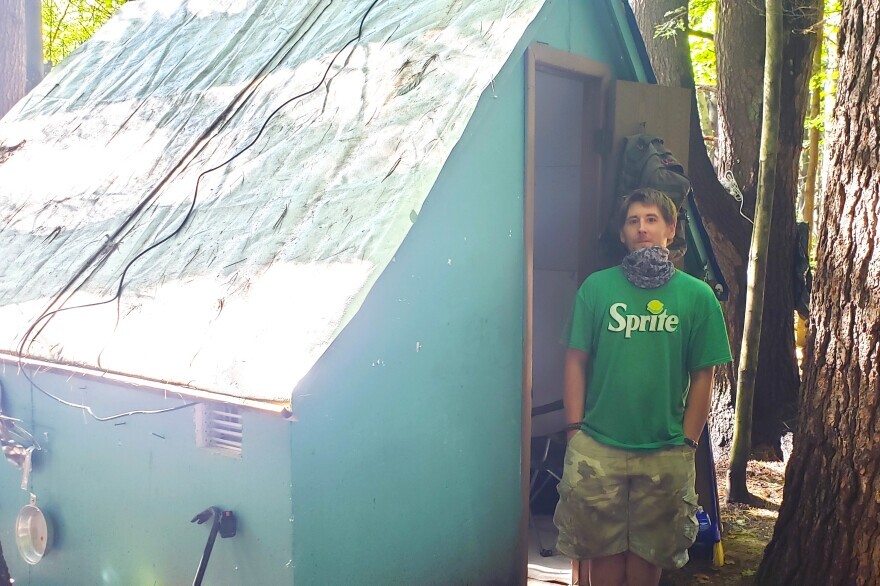Vermont communities clear out campsites in the woods, but unhoused residents say they have nowhere else to go

Keith Ingalls uses solar panels, car batteries and an inverter to power his electronics at night instead of a generator. His dad was an electrician. (Lexi Krupp/VPR)
Down a hill from an office park in White River Junction is a campsite tucked away in the woods. It’s beneath a highway corridor, on land owned by the Vermont Agency of Transportation.
There’s a small green cabin next to a covered cooking area. Inside is a bed on a raised platform, neatly made. Battery-powered lights dangle overhead.
Keith Ingalls lives here. He’s in his mid-30s, with a boyish face. He’s tried to clean the place up — he wants it to look presentable. He’s clear though, this is not where he wants to be.
“I don’t enjoy living like this,” he said. “I still want to do better. I still want to succeed. This is not how I want to live. This is just unfortunately where I’m at, at this point in time.”
Ingalls has lived in White River Junction for a few years, and only started camping during the pandemic.
“Before this, I worked at a movie theater,” he said. “When the pandemic hit, that was one of the first things they shut down.”
He lost his job and from there, everything spiraled. He lost his housing. And he has a criminal record, so he doesn’t qualify for most low-income apartments and state housing vouchers.
Having this place to live has helped him get by and stay safe as colder weather approaches. He doesn’t know what he’ll do if he has to leave. And that’s been a big concern recently.
Under the town policy for Hartford, Vermont, if someone complains about a campsite in what’s deemed a high-sensitivity area, like state land in a highway corridor, the town can notify landowners and ultimately have the campsites taken down.
The problem with doing this in Hartford is that many people experiencing homelessness say they have nowhere else to go.
For the rest of the story, including the audio version, please visit VPR.org.
